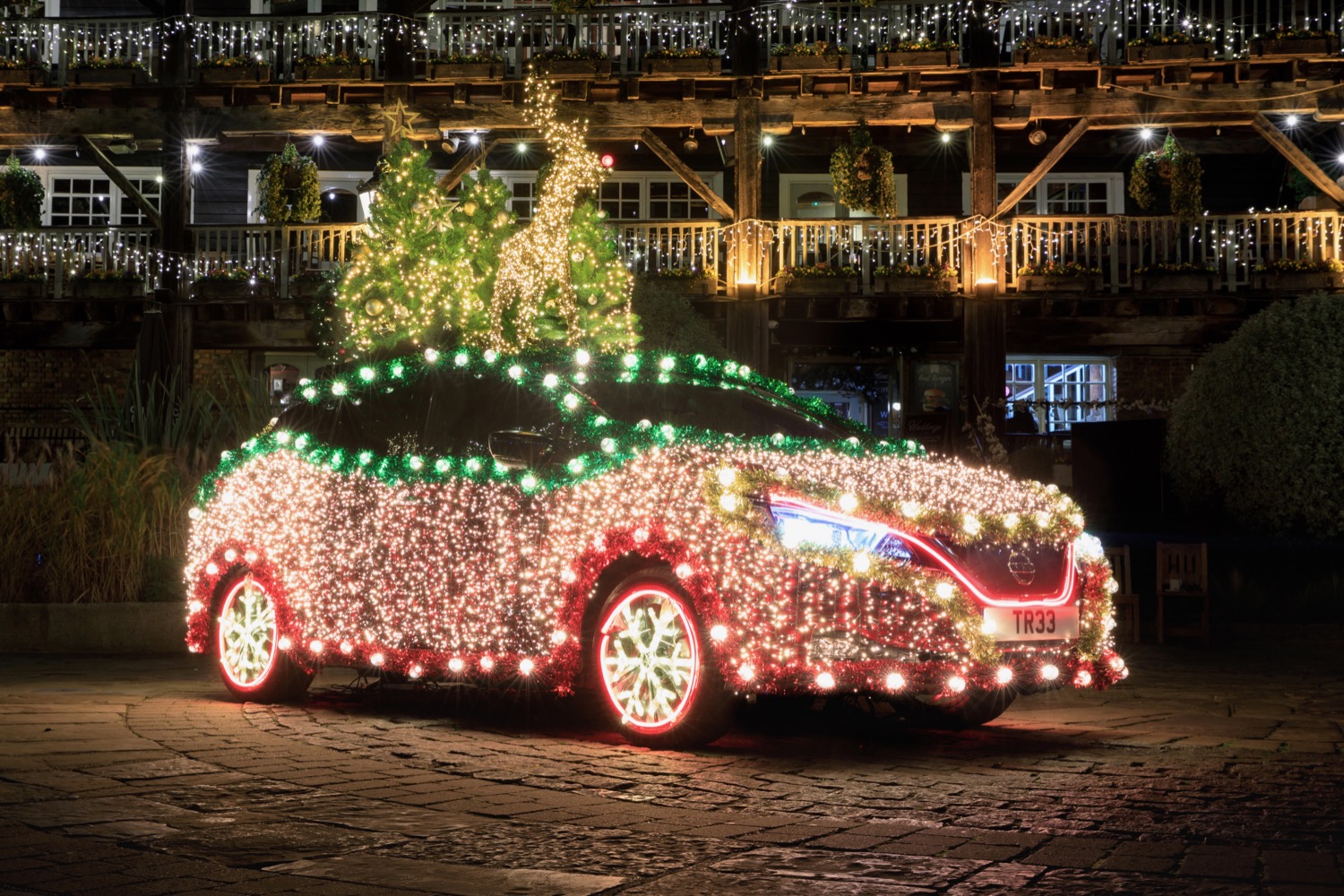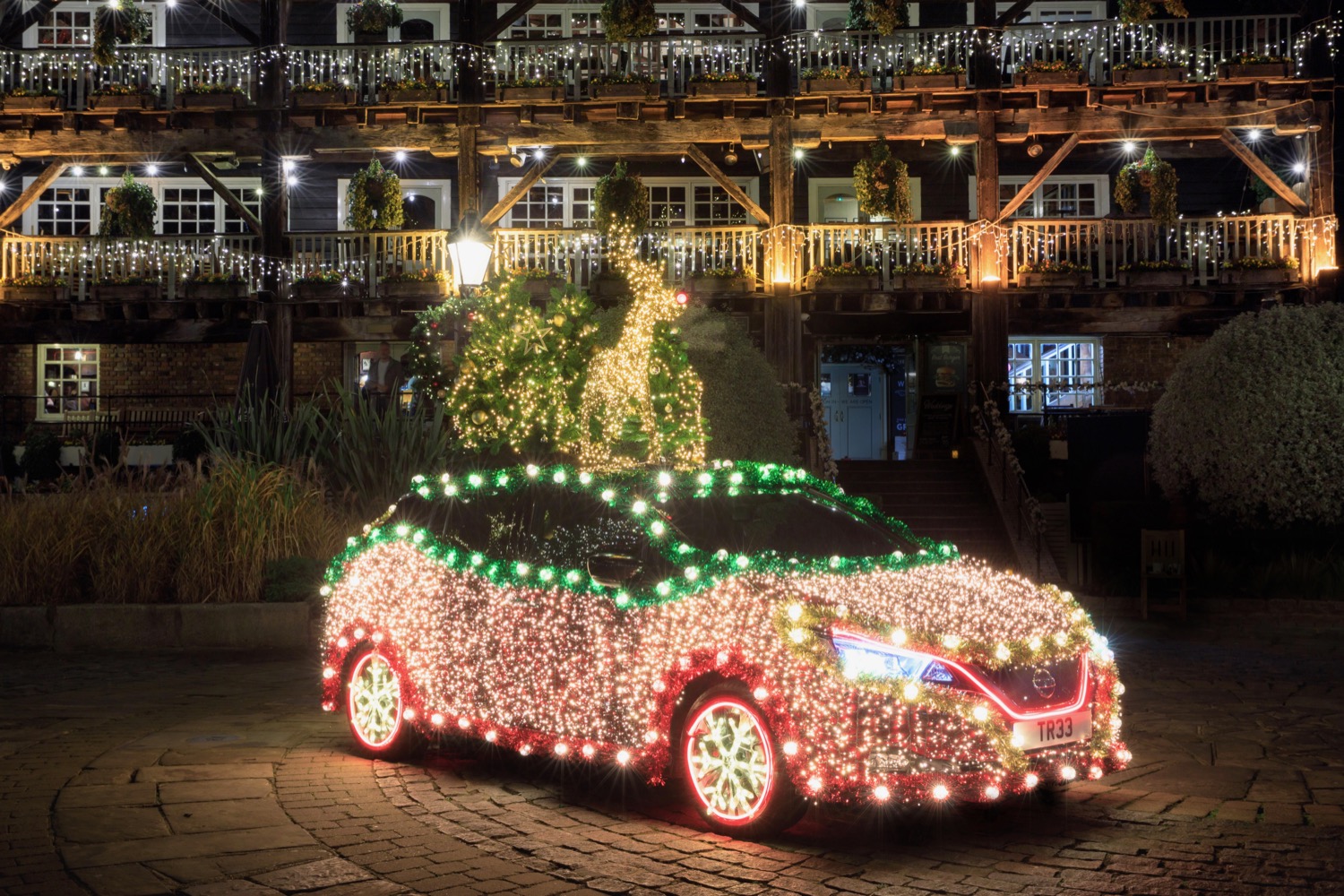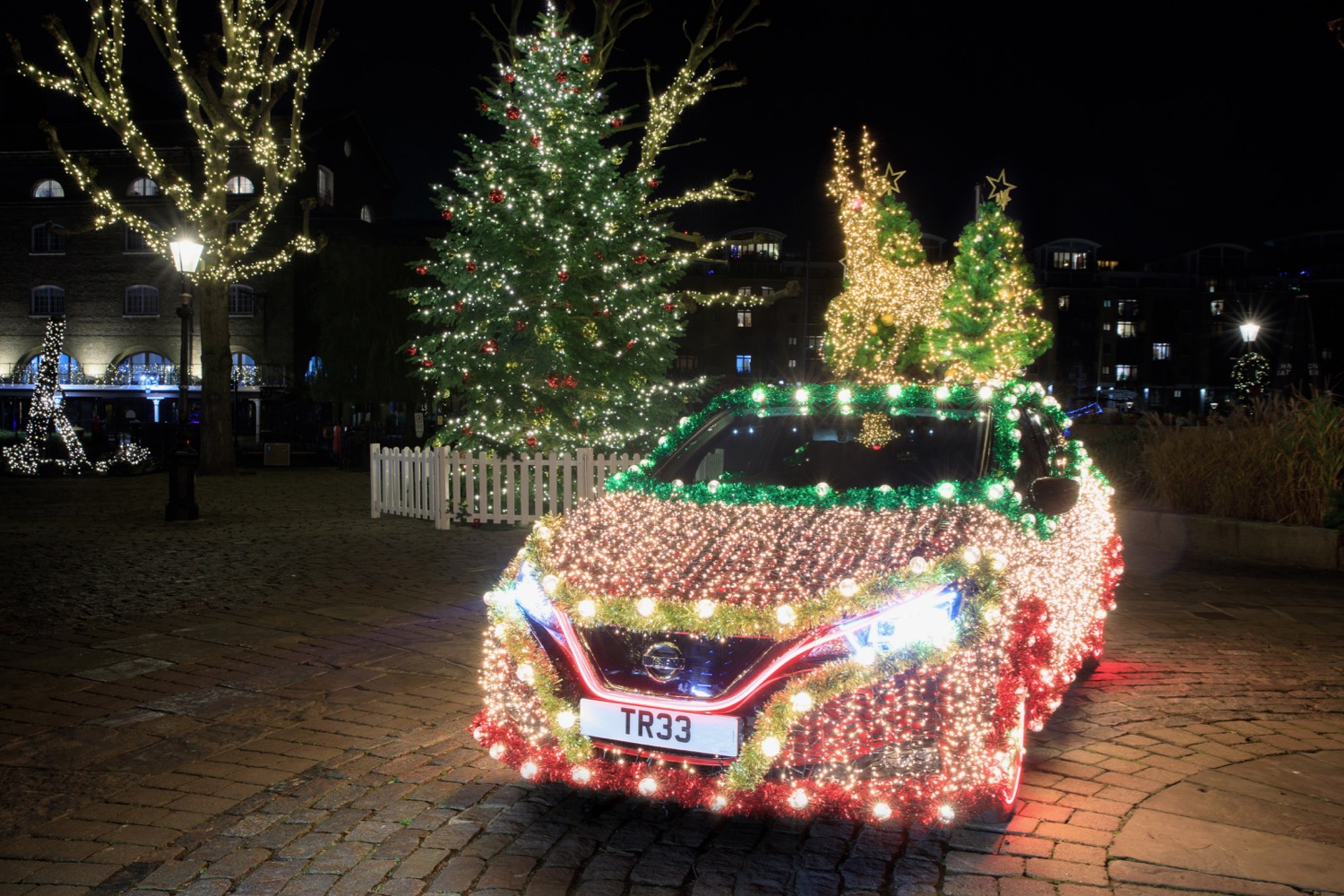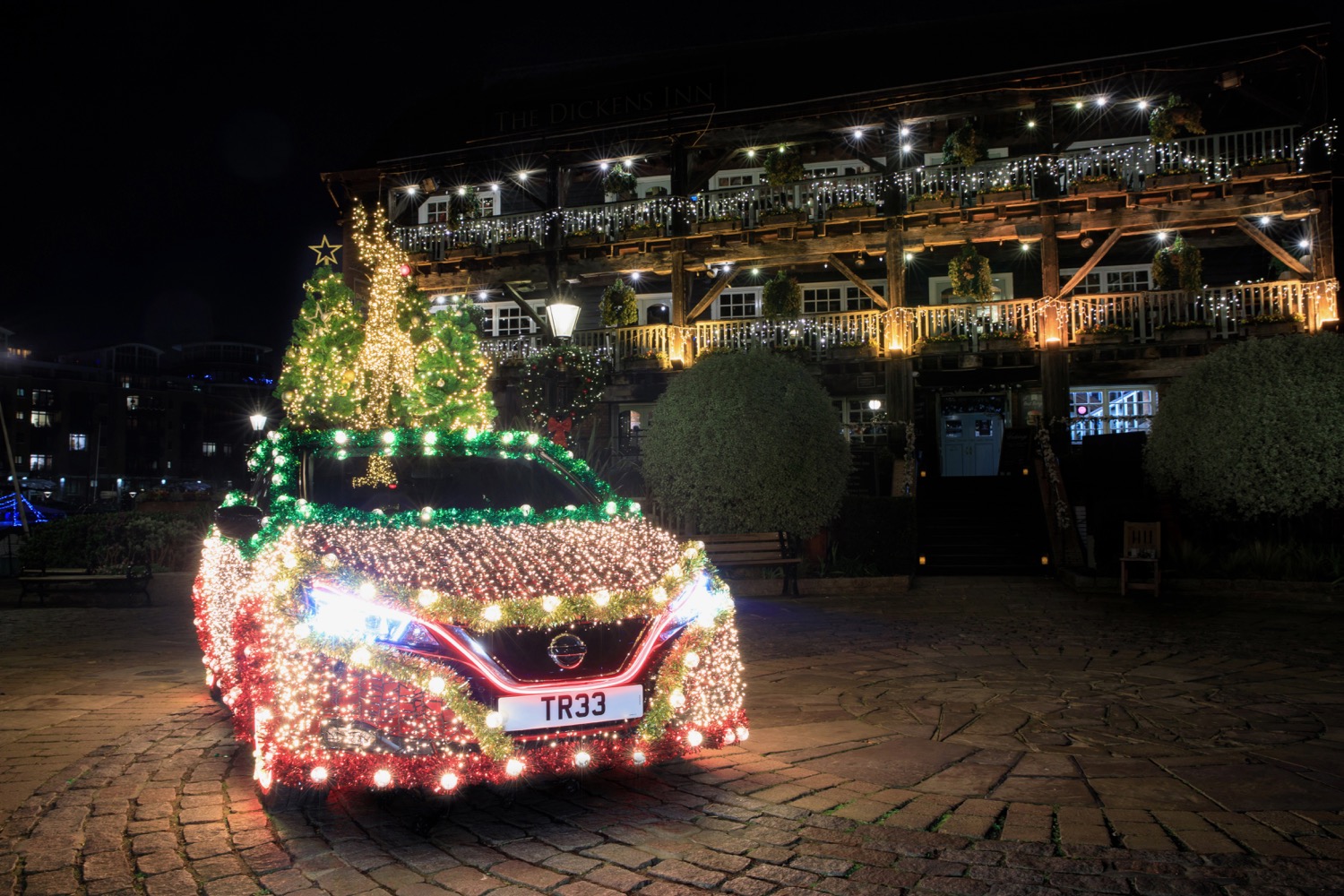Someone at Nissan is channeling their inner Clark Griswold.
Nissan draped a Leaf electric car in thousands of LED lights to create a mobile Christmas tree. The Leaf has a ready source of electricity to power those lights in the form of its onboard battery pack, but the car wouldn’t be able to drive very far with all of them plugged in. That’s where the Leaf’s regenerative braking system comes in.
Like most electric cars (as well as hybrids), the Leaf uses regenerative braking to recover energy normally lost as heat. In normal driving, that helps maximize range and allows drivers to decelerate without touching the brake pedal. Nissan claims Leaf drivers regenerate up to 744 kilowatt-hours of electricity for every 18,000 kilometers (11,184 miles) driven. That’s enough to recharge the 62-kWh battery pack in a Nissan Leaf Plus 12 times.
Because nothing says holiday cheer like statistics, Nissan came up with some other potential uses for that energy. It’s enough to power 10,783 houses with 1,000 LED lights each for five hours, or 266 Christmas trees with less-efficient incandescent lights for one hour, the automaker claims.
While regenerative braking is pretty standard among electric cars, the Leaf has an additional feature that helps drivers take advantage of it. Nissan’s e-Pedal blends regenerative braking and conventional mechanical brakes, taking away some of the guesswork about when to use the brake pedal. The Leaf can even bring itself to a complete stop without the driver touching the pedal.
Launched almost a decade ago, the Nissan Leaf was the first modern electric car to go on sale in large numbers. It has since become the bestselling electric car in history, although Nissan has failed to capitalize on that by adding other electric models. That may change soon.
Nissan is expected to launch an electric crossover, taking advantage of the current popularity of high-riding utility vehicles. The new model could take styling cues from the Nissan IMx concept, and likely won’t appear earlier than 2021. Nissan has already confirmed that it is developing a dual-motor electric all-wheel-drive system, indicating that a crossover is on the way. All-wheel drive is high on the list of reasons why buyers are choosing crossovers over sedans and hatchbacks.
Editors' Recommendations
- Why your EV’s voltage matters, and what it means for your car’s charging speed
- How to charge your electric car at home
- Inside the Vietnamese giant that wants to sell you your next EV
- Nissan’s ‘smellmasters’ perform odor checks on new cars
- Watch Nissan’s awesome new ‘Intelligent Factory’ in action






